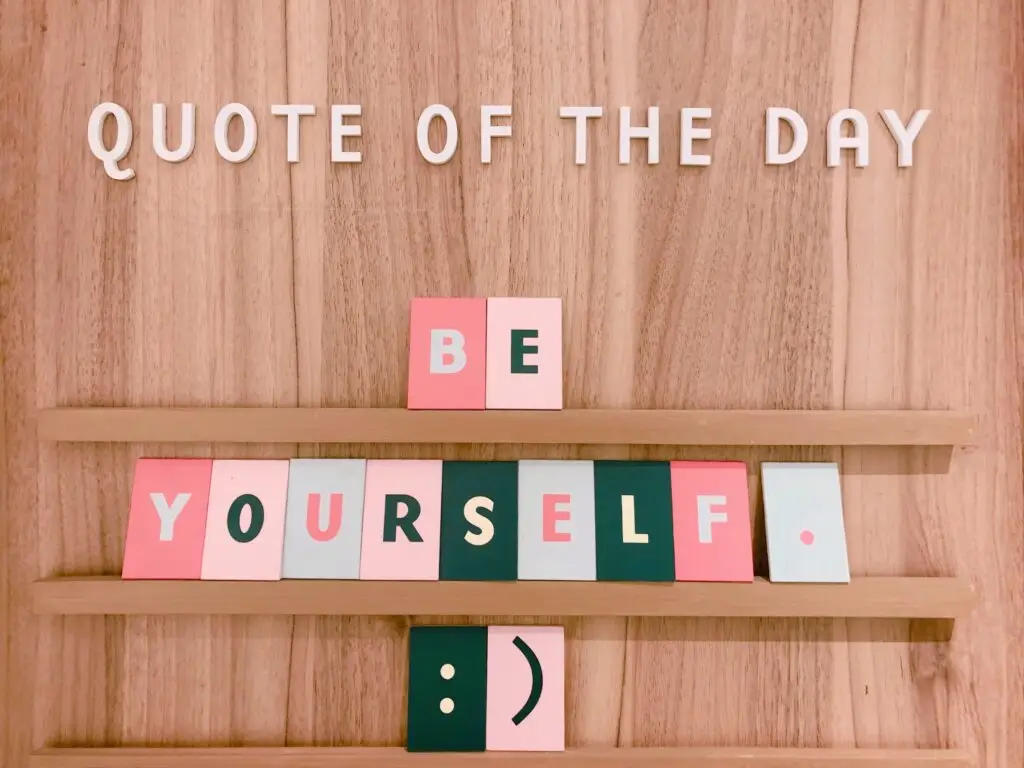
International Being You Day is an occasion that celebrates individuality, authenticity, and the courage it takes to embrace and express who you truly are. For many, it serves as a reminder to live authentically and proudly. However, for neurodiverse individuals, this concept can be complicated by the challenges of masking, social expectations, and a lifelong battle with self-acceptance. In this blog, we will explore the significance of International Being You Day, especially from the perspective of those who are neurodiverse. We’ll discuss the obstacles neurodivergent individuals face when trying to “be themselves,” how society’s expectations contribute to these struggles, and how we can foster an environment where being yourself is celebrated in all its diverse forms.
What is International Being You Day?
International Being You Day is a celebration of authenticity and the power of simply being yourself. It encourages people worldwide to let go of societal pressures, embrace their unique qualities, and live truthfully. This day is not just about encouraging people to act freely but also about creating spaces where individuals can express themselves without fear of judgment or discrimination.
While the day serves as a celebration for everyone, it holds a particularly significant meaning for neurodiverse individuals who may struggle more than others to be their true selves. For those on the autism spectrum, ADHD, dyslexia, and other neurodivergent conditions, “being yourself” often requires navigating a complex and sometimes difficult terrain of social norms, masking, and judgment. For these individuals, International Being You Day serves as a reminder that their way of being is valuable, and they have the right to live authentically.
The Struggles of Being Yourself as a Neurodivergent Individual
For neurodivergent individuals, the idea of “being yourself” is often intertwined with a sense of uncertainty and fear of social rejection. A common experience among neurodiverse people is the need to mask or hide their true selves in order to fit in. Masking is the act of consciously or unconsciously suppressing behaviours, interests, or mannerisms that are considered atypical or socially unconventional. This behaviour is often learned in childhood, when neurodivergent children notice that their differences may lead to negative feedback, ridicule, or exclusion.
Masking: A Survival Mechanism
As children, neurodiverse individuals often face harsh judgment. They may be labelled as “unique” or “odd,” which may contribute to feelings of alienation and isolation. To avoid these negative reactions, many learn to suppress parts of themselves in social settings, sometimes without realising they are doing so. Over time, masking can become second nature, and it can be challenging to break free from it, especially when masking feels like a way to protect oneself from judgment.
This can be especially taxing on mental and emotional well-being. Constantly trying to fit into societal norms and suppressing one’s true identity can lead to burnout, anxiety, and feelings of inadequacy. For neurodiverse individuals, masking can create a disconnect between how they feel inside and how they present themselves to the world. The fear of being judged, criticised, or misunderstood can prevent them from fully embracing the idea of “being yourself.”
The Impact of Societal Expectations
From a young age, neurodivergent children often experience societal pressure to conform. This can stem from teachers, parents, or peers who may not understand neurodiversity. Neurodivergent individuals may face situations where their behaviour or thinking patterns do not align with the traditional expectations of social norms. For example, a child with autism may struggle with eye contact or have difficulty engaging in reciprocal conversations, which can be misinterpreted as rude or disengaged behaviour.
As a result, these individuals may internalise negative feedback and start to believe that they need to change their behaviours in order to fit in. This can lead to a cycle of self-doubt, low self-esteem, and confusion about their identity. Neurodiverse individuals may feel like they are never quite good enough or that they are always “playing a part” rather than being true to who they are.
This constant need to mask and modify oneself can contribute to feelings of frustration, isolation, and a lack of self-worth. When neurodivergent individuals are told they are “too much” or “not enough” of something, it reinforces the notion that their authentic selves are not acceptable in society. This can create significant barriers to embracing the concept of “being yourself.”
Encouragement for Neurodiverse Individuals: Embrace Your Authenticity
Despite the challenges that neurodivergent individuals may face, International Being You Day offers a valuable opportunity for reflection and self-empowerment. The key message of this day is that everyone has the right to be themselves, and that right extends to neurodivergent individuals as well. It is important for those who are neurodivergent to recognise that they do not need to conform to societal standards in order to be worthy of respect, love, and acceptance.
Here are some practical steps that neurodiverse individuals can take to embrace their authenticity:
1. Recognise the Impact of Masking
Understanding that masking is a survival mechanism rather than a choice is an important first step. Acknowledging that you are masking for protection, rather than out of a need to conform, can help you take small steps toward being more authentic. Reflect on times when you feel the most at ease or true to yourself, and try to recreate those moments in your everyday life.
2. Practice Self-Compassion
Being kind to yourself is crucial. For neurodivergent individuals who have spent years trying to fit in, learning to be compassionate towards oneself can be transformative. Embrace your strengths and challenges with kindness, recognising that everyone has their own unique qualities.
3. Seek Support and Community
Finding a community where you feel accepted for who you are can help combat the fear of judgment. There are many online and in-person groups for neurodivergent individuals where you can connect with others who share similar experiences. These spaces can help you learn from others who have gone through similar struggles and help you feel empowered to be yourself. One Charity that helps with neurodiverse individuals struggling with masking is TheBrainCharity.
4. Take Small Steps Toward Authenticity
Being yourself doesn’t necessarily mean throwing away all of your coping mechanisms at once. Start by gradually introducing more of your authentic self into everyday interactions. Whether it’s by speaking openly about your neurodiversity or expressing your unique interests and opinions, each small step can help build confidence and resilience.
Neurodiversity Training at Qualia: Supporting Neurodivergent Individuals
At Qualia, we understand the challenges neurodiverse individuals face when it comes to being themselves in various environments, especially in the workplace. That’s why we offer neurodiversity training for both neurodivergent individuals and those who work with them. Our training programs aim to create a more inclusive and supportive environment, where everyone can thrive regardless of their neurological makeup.
For Neurodivergent Individuals:
We offer practical strategies for neurodivergent individuals to better understand themselves, manage challenges, and develop coping strategies that support their well-being. Our training helps them feel empowered to advocate for themselves in both personal and professional settings, and provides them with tools to navigate social situations with greater ease.
For Employers and Colleagues:
Our neurodiversity training is also aimed at organisations and individuals who work with neurodivergent colleagues. This training provides valuable insights into neurodiversity, emphasising the importance of inclusivity and the value of diverse perspectives. Through our programs, participants learn how to foster a positive and supportive work environment for neurodivergent individuals, helping them to succeed and contribute fully to the organisation.
By providing neurodiversity training, we equip individuals and organisations with the tools to create workplaces that are inclusive and respectful of neurodivergent people. These tools not only enhance professional relationships but also contribute to a broader culture of acceptance and appreciation for the diversity of thought and behaviour.
Conclusion
International Being You Day is a celebration of authenticity, and for neurodivergent individuals, it holds even more significance. The challenges of masking, societal expectations, and fear of judgment often make it difficult to fully embrace the concept of being yourself. However, through understanding, support, and self-compassion, neurodiverse individuals can begin to overcome these barriers and live authentically. At Qualia, we are committed to helping neurodivergent individuals and those who work with them navigate these challenges through our neurodiversity training programs. Together, we can build an inclusive world where everyone, regardless of their neurological makeup, can truly be themselves.
So, to all neurodiverse individuals reading this: remember that you are enough as you are. Don’t be afraid to be yourself. You deserve to be seen, heard, and appreciated for the unique contributions you bring to the world.









